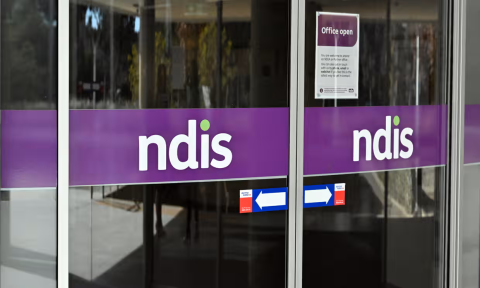
Committee hears every family Autism Partnerships Australia worked with who challenged their NDIS funding rejection was eventually approved for intensive support
The National Disability Insurance Agency is failing young children severely affected by autism by rejecting their claims for intensive support funding only to do an about-face after families have spent months in a lengthy, expensive tribunal process, a parliamentary committee has heard.
Autism Partnerships Australia (APA) told the joint standing committee on the National Disability Insurance Scheme (NDIS) the agency was “getting the planning decisions wrong” for 100% of the autistic children in its early intensive services.
Every family the organisation worked with who challenged a funding rejection at the administrative appeals tribunal was eventually approved for intensive support, APA’s director, Shannon Eeles, told the hearing.
The committee is examining the capability and culture of the NDIA, including its operational processes and procedures, the nature of staff employment and the experiences of people with disability and NDIS participants trying to access information, support and services.
“We know that the original planning decision is wrong, we know the [NDIA internal review] decision is wrong, because 100% of the children who proceed to appeal are ultimately funded for intensive services. In most instances, that is the NDIA simply changing their mind,” Eeles said.
The average time frame for the NDIA “changing their mind” was 81 weeks, or one and a half years, Eeles said, which equated to a third of the life of a four-year-old waiting for support.
The cohort of children under discussion were aged between two and six and very affected by their autism, with profound developmental delays, meaning they had less than half of the skills that would be expected for their age.Due to their difficulties in coping with daily life, APA and external professionals had determined that those children needed direct intervention, sometimes up to 25 hours or more a week.
The committee chair, Liberal senator Hollie Hughes, expressed horror at testimony from Eeles alleging senior NDIA executives had claimed children were attending the organisation’s services “because their families want free childcare”.
“Someone in the agency said that?” Hughes asked. “I am absolutely serious here, I want every name of any person who says that to a parent.
“To call it childminding – any person should be sacked for saying that. That is abuse and vilification at the worst level.”
Karen McKinnon, APA’s national clinical director, told the hearing there were “children who are being forced to leave childcare because they’re unsafe in childcare, or the childcare staff aren’t able to support them”. The intensity of support recommended was specifically only for a couple of years while the children were young and would then decrease as children began to attend school.
“We have shown in countless different ways this evidence and despite the logic, and despite the calibre of evidence both qualitative and quantitative, it remains the fact that children who receive this intervention do not get funding at the start,” McKinnon said.
“The only consistent way of getting funding for this type of intervention is to go through [the] AAT … 100% of children [whose families] are able to sustain the appeal process go on to be funded for intensive service.”
In September last year, the NDIS minister, Bill Shorten, announced an independent body would be set up to review the thousands of outstanding NDIS legal appeals in what he said was an attempt to “cut the bullshit” for participants and applicants.
APA representatives told the committee that they were in the dark as to the underlying reason why so many of their clients’ funding requests were initially rejected – whether it was a concern about the therapeutic approach itself or the level of funding required.
They said there seemed to be a “concerted effort” to deter families from sticking with the AAT process, including delaying tactics, accusations of overspending and misusing funds, forced plan management and “improper lines of inquiry from medical experts that include financial scrutinisation that has no relevance to the case” given the NDIS is not means-tested.
The hearings come as an independent review led by Prof Bruce Bonyhady examines the sustainability and design of the NDIS, amid political debate about the cost of the scheme.
from https://www.theguardian.com/australia-news/2023/aug/29/national-disabil…;